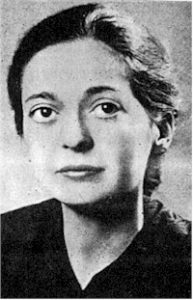 On this day, July 13, 1960, C. S. Lewis lost his wife, Joy, to cancer. It was a devastating loss for him; their very short marriage he considered the apex of his life. Here’s how I wrote about it in my book, America Discovers C. S. Lewis: His Profound Impact:
On this day, July 13, 1960, C. S. Lewis lost his wife, Joy, to cancer. It was a devastating loss for him; their very short marriage he considered the apex of his life. Here’s how I wrote about it in my book, America Discovers C. S. Lewis: His Profound Impact:
“The blow has fallen,” Lewis informed [his friend Chad] Walsh in October 1959. News that Joy’s cancer had returned was a shock. Prior to receiving this bad news, they had planned a May trip to Greece. Neither had ever been there, but for Joy, in particular, seeing Greece was an unfulfilled passion. Now they had to wonder if those plans should be canceled.
She resisted; they went anyway, even knowing that it could drain the last drops of energy from her. Lewis wrote of it to Walsh shortly after they returned, wherein he remarked that though, at first, he doubted she would be able to make the trip, it turned out wonderfully. They had no regrets for making the trip. Lewis considered Joy “divinely supported” the entire time. She had been granted a lifelong desire and was grateful.
 Death—the last enemy the Christian faces before being ushered into the presence of God—came to Joy Lewis a few weeks later on 13 July 1960. Lewis wrote of it to many of his correspondents, but the letter to Walsh probably provides the greatest insight into her last moments.
Death—the last enemy the Christian faces before being ushered into the presence of God—came to Joy Lewis a few weeks later on 13 July 1960. Lewis wrote of it to many of his correspondents, but the letter to Walsh probably provides the greatest insight into her last moments.
“It was a wonderful marriage,” Lewis confirmed to Walsh. “Even after all hope was gone, even on the last night before her death, there were ‘patins of bright gold.’ Two of the last things she said were ‘You have made me happy’ and ‘I am at peace with God.'”
Shortly after Joy’s death, Lewis began recording his feelings. Out of those daily jottings came an honest little book full of anguish, pain, and questioning of God’s ways, yet ultimately coming to the conclusion that one must put one’s life in His hands and allow Him to bring the healing, both now and in eternity.
 A Grief Observed was published in 1961 initially under a pseudonym, N. W. Clerk, which was a pun on an Old English term for “I know not what scholar.” In those eighty-nine pages (more of a booklet than a book), we find Lewis struggling emotionally. Intellectually, he knew the answers to his questions, but he needed to work through the inner conflict that was making him doubt God’s goodness.
A Grief Observed was published in 1961 initially under a pseudonym, N. W. Clerk, which was a pun on an Old English term for “I know not what scholar.” In those eighty-nine pages (more of a booklet than a book), we find Lewis struggling emotionally. Intellectually, he knew the answers to his questions, but he needed to work through the inner conflict that was making him doubt God’s goodness.
Lewis’s faith held. He lived only three more years, and was in bad health most of that time. By the end, he was fully resigned to death, even anticipating it. His understanding of his own faith, and his grasp of the door that opens into the next world, was enhanced by his relationship with an American, Jewish, former atheist, former communist woman who became the love of his life.
